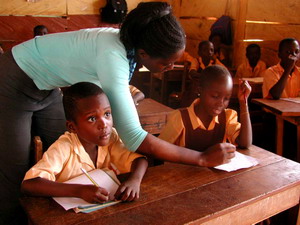They say it is informed by research and that if it’s allowed to run its course, it could turn out to be one of the best educational policies the country has ever had. Teachers have apparently been trained to implement it and make sure that it attains the desired results. Yet, it has failure written all over it.
The decision to use languages other than English as the medium of instruction in the first three years of basic education will hurt the nation. With this policy the managers of the Ghanaian educational system are embarking, yet again, on needless experiment that will not help anyone.
They travelled to places like Kenya and Tanzania where they saw that pupils were being instructed in Swahili. They were told that using Swahili as the medium of instruction aided the comprehension of basic concepts. And now officials of the Ghana Education Service feel a similar policy would work here as well.
- Advertisement -
They forget that in Kenya, Swahili is an official language. Every national document written in English has a Swahili equivalent. Newspapers have Swahili versions. Swahili is a language everyone speaks and so for Kenyans, it is so easy to draw up a uniform code of instruction for teachers to follow. As a result, if, for example, a child moves from one end of the country to another, say because his parents have been transferred, it’s easy for him to pick up from where he left off in the previous town. It’s even easier for them because they do not need to print textbooks in various languages.
Here in Ghana, however, there are more than 40 local languages. It will be very costly – impossible, in other words – to draw up a uniform code of instruction. Even with donor money, the nation cannot afford to print about 40 different versions of each textbook to be used at the lower primary level. Imagine a situation where a child moves from Accra – where Ga is supposed to be the medium of instruction – to, say, Dzodze, where they teach in Ewe. How on earth is he going to learn anything in the new language?
This new policy will also affect teacher transfers. You can’t transfer a Fante-speaking teacher to Prampram if he’s supposed to be using Ga Dangbe to teach at his new posting. In a country with a shortage of teachers as severe as the one we have in Ghana, this should not be the case. The GES should be able to move its teachers around as much as possible without restricting even a single one of them on the basis of an inability to speak a specific local language.
Finally, this policy of instructing pupils at the lower level is being introduced at a time when there is serious concern about the quality of spoken and written English in Ghana. If the GES adamantly proceeds to implement this policy, the problem will get worse – not better. If those who were introduced to the English language much earlier in life cannot speak and write it so well, how does anyone expect those who get a late introduction to do better?
The new policy might sound like a good idea on paper (especially, in a place like Kenya) but it’s a very bad one for Ghana. It won’t work – not until Ghana has adopted a second national language and developed it as such. Twi should be the obvious choice. But any attempt to make Twi a national language will be fiercely resisted even though it’s a language spoken as widely in Ho as in Kumasi.
This new language policy is yet another dangerous experiment the Ghanaian education system can very conveniently do without. If the authorities insist, however, on going ahead with it, they should first be able to produce evidence that the use English as a medium of instruction in the first years of school is harmful.


